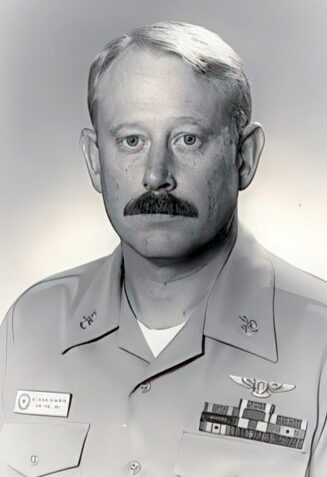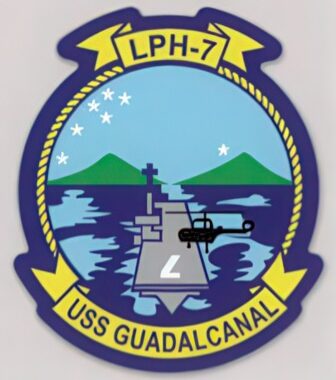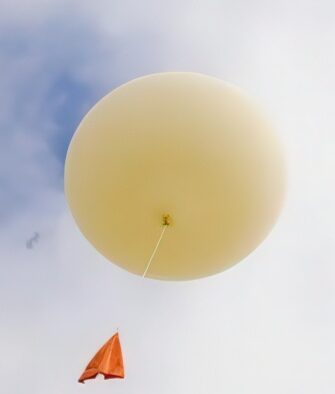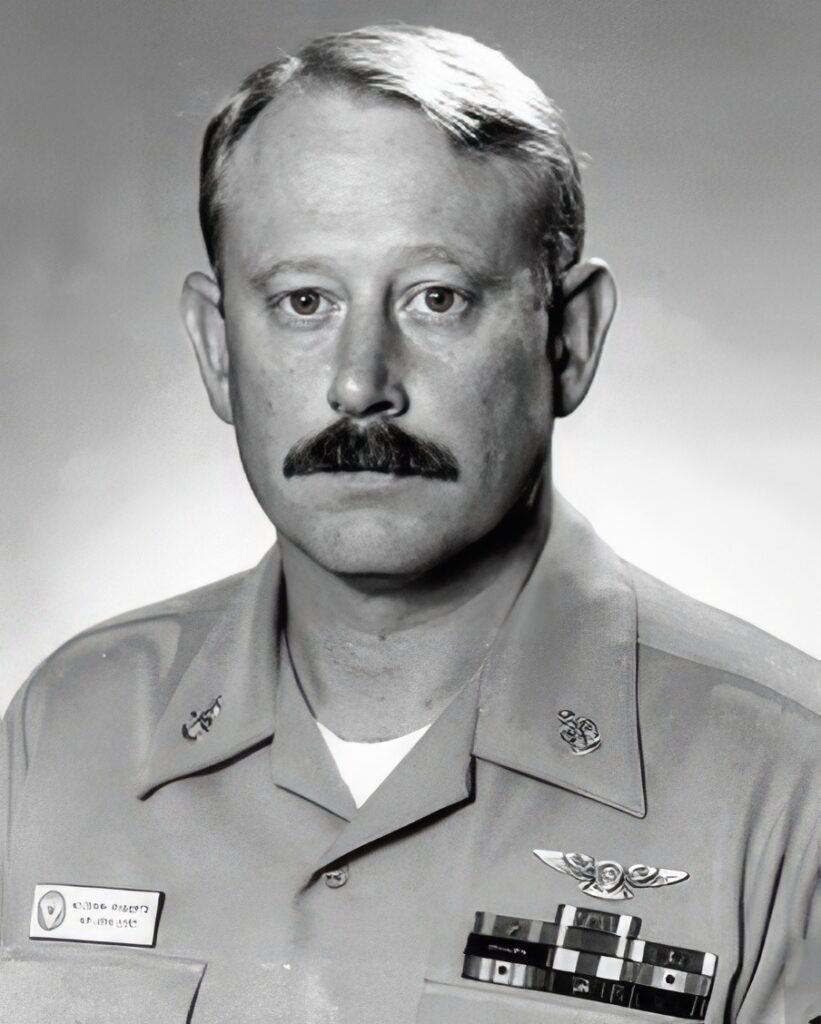PRESERVING A MILITARY LEGACY FOR FUTURE GENERATIONS
The following Reflections represents ACCS David L. Roberts’s legacy of his military service from 1971 to 1997. If you are a Veteran, consider preserving a record of your own military service, including your memories and photographs, on Togetherweserved.com (TWS), the leading archive of living military history. The following Service Reflections is an easy-to-complete self-interview, located on your TWS Military Service Page, which enables you to remember key people and events from your military service and the impact they made on your life. Start recording your own Military Memories HERE.
Please describe who or what influenced your decision to join the Navy.

THE MILITARY DRAFT. In 1971, the Vietnam War and the draft were still going on. My number came up, and before my draft notice was issued, I joined the Navy. The next thing I knew, I was in NTC Orlando, FL, for 11 weeks.
Whether you were in the service for several years or as a career, please describe the direction or path you took. Where did you go to boot camp, and what units, bases, ships, or squadrons were you assigned to? What was your reason for leaving?

Following my first enlistment, I separated and moved my family back to our hometown. This was in 1975, with lines at the gas pumps and a 12% unemployment rate. After less than 45 days, I realized that I had a pretty good deal as an air traffic controller in the Navy, so I reenlisted and never looked back. After another 22 years, six months, and 13 days, I returned again following my retirement.
After a very rewarding career that spanned various assignments with increasing duties and responsibilities, I concluded my career back in Fort Worth, TX. My assignment was an independent duty with the Office of the Department of the Navy Representative, Federal Aviation Administration, Southwest Regional Headquarters. This was one of four prestigious assignments for senior air traffic controllers in all military branches.
If you participated in any military operations, including combat, humanitarian, and peacekeeping operations, please describe those that made a lasting impact on you and, if life-changing, in what way?

Tactical Air Controller, TACRON-21 LCPO assigned to Commander, Naval Amphibious Group Two, MARG 1-86, Det. One, USS Guadalcanal LPH-7, Mediterranean Sea, deployment including combat operations, Attain Documents. I participated in Operations Prairie Fire and El Dorado Canyon, which were all offensive operations against Libya.
Although my ship never came under fire, I look back, and I realize the importance of good training because things could have very well been different with a different enemy.
Did you encounter any situation during your military service when you believed there was a possibility you might not survive? If so, please describe what happened and what was the outcome.

I never had any close calls in combat, but there was one time, for a few moments, I really feared for my life. From time to time, we would let new controllers fly on the air stations’ search and rescue UH-1 helicopters when they were planning to do some instrument training and ground-controlled approach. The purpose was to let the new controller experience what it is like to be on the pilot side of the approach, so they would have a better understanding when training in the radar room.
Well, one day it was my turn, and we were up flying somewhere southeast of the air station, just getting in some flight time. The pilots were on their way back to an old landing strip that was about a mile south of the airport and were going to practice doing auto-rotation. This emergency maneuver requires you to get the aircraft on the ground as fast as possible. I think we had already practiced one or two auto-rotations when suddenly, at about 2,500 feet, there were red and yellow flashing lights all over the pilot’s instrument panel. This was the real deal, and I heard the co-pilot broadcast on the aircraft’s emergency UHF channel that we were declaring an emergency, and we were auto-rotating for a possible crash landing. My seat belt was on tight, and I braced for impact. There was no hovering; it was a hard landing, but through the skill and training of the two pilots, we made a safe landing. Didn’t fly in a helicopter for a long time after that.
Of all your duty stations or assignments, which one do you have fondest memories of and why? Which was your least favorite?

From a military job standpoint, I think my experience with TACRON 21 at NAB Little Creek, VA., was the best. We were a small command of about 12 Officers and around 40 enlisted. We were a very close-knit group of sailors who were constantly training for the next overseas detachment and consistently trying to anticipate what the world political situation might be during our deployment time. When we were home at Little Creek, it seemed we (Officers and enlisted) always had something going that included all the families.
If I had a least favorite assignment, it would have to be the time I spent on the USS Constellation CV-64 in the Bremerton shipyards. There was nothing fun or exciting about a dry dock period.
From your entire military service, describe any memories you still reflect back on to this day.

I have so many good memories from my career. Still, the ones I look back to and share with others is my time onboard the USS Constellation CV-64 and my deployment time at TACRON 21 on the USS Guadalcanal LPH-7 and various other smaller ships. Those were times we were all at our best, doing our jobs and having a great time when on liberty.
What professional achievements are you most proud of from your military career?

I think being selected for independent duty at the Department of the Navy Representative, FAA Southwest Headquarters, Fort Worth, TX, was the proudest moment for me. I saw it as an affirmation of my skills and knowledge of the Naval Aviation program and the National Airspace System.
Of all the medals, awards, formal presentations, and qualification badges you received, or other memorabilia, which one is the most meaningful to you and why?

I think the Enlisted Aviation Warfare Wings are the most meaningful to me. Earning those wings made me get outside of my comfort zone and learn other important aspects of Naval Air Warfare. It wasn’t something you received for a single event, but something you had to invest time and learning into. I was very proud when my Commanding Officer pinned those wings on me.
Which individual(s) from your time in the military stand out as having the most positive impact on you and why?

I had many leaders and friends throughout my Navy career who influenced my path and, frankly, my growing up. People like William (Bill) Dunaway, Pete Lee, and my best friend, Rick Schmidt, who all taught me how to be the best professional air traffic controller I could be. Study, know the rules and procedures, and always give 100% effort. If you can’t, then go home; it’s too essential; mistakes can be very costly in terms of property, and lives both in the air and on the ground are always in the balance.
The one Naval Officer I have always had the utmost respect for, but he will never know it, is Lieutenant Commander David Jordan, my division officer aboard the U.S.S. Constellation. He was a man who started at the bottom, worked his way up through the enlisted ranks, and got an officer’s commission. He became a Naval Flight Officer and a Radar Intercept Officer (R.I.O.) in the F-4 Phantom and flew many missions over North and South Vietnam. He taught me what it meant to be a leader and always to be accountable. If I gave him paperwork that wasn’t correct or up to his standards, he didn’t just accept it and correct it for me. He gave it back to me, instructed me on what was wrong, and made me do the work until it was 100% correct. He showed me by his own actions what it meant to stand by your people, whether they were right or wrong.
He loved cigars and always had one in his mouth or hand, whether it was lit or not, and almost always had a serious expression on his face; however, I do remember him laughing and telling some good stories or jokes when we had time to relax. Commander Jordan was a man of his word and very confident in everything he did. He was an honorable man of unwavering integrity, a superb Naval Officer, and I’m very proud to have known him and to have served with him.
Can you recount a particular incident from your service, which may or may not have been funny at the time, but still makes you laugh?

Control Tower NAS Kingsville, TX. One night we and FAA controllers were getting reports of pilots seeing strange lights in the sky near a chemical plant north of Kingsville.
After I got off-ground control, I told the supervisor I was going down to the weather office and that I had a little trick to play on a new controller. I went to the weather office and told a friend of mine there what I wanted to do, and he agreed to help me. We took a winds aloft balloon about three to four feet in diameter, and it was kind of a lime green in color. We had a small light bulb, and when you placed the end of it in some kind of wet wax they had, it would glow, so we put it in the balloon and then aired it up with helium. The end of the balloon was then secured and then attached to a one-hundred-foot section of the line, and we took it outside to the base of the control tower, which was ninety feet in height.
While we were getting the balloon ready, the tower supervisor had given a pair of binoculars to the new guy and told him to get out on the ‘catwalk’ that went around the control tower just below the windows and to watch for any of the strange lights that were being reported out to the north and northwest. When we saw him come out on the catwalk and start looking through the binoculars, we started letting the balloon go up slowly.
So here we have a guy looking through some powerful binoculars and a large balloon glowing bright green. As the balloon reached the level of the catwalk, he turned around and saw it in the binoculars at seven times normal view as he screamed and rushed to get back in the control tower. The other guys said he nearly broke a leg trying to get in, yelling, “I saw it, I saw it” and all the while, my friend and I were rolling in the grass at the base of the control tower, laughing our heads off.
By the way, we lost the balloon and now everyone at the airport saw a green UFO floating up and across the field. We had to answer a few questions from a very unhappy weather chief the next day.
What profession did you follow after your military service, and what are you doing now? If you are currently serving, what is your present occupational specialty?

After retiring from the Navy, I really didn’t know what I wanted to do. I did some substitute teaching at our local high school, but teaching was not for me. I landed a job with a company that serviced all types of computer products for large commercial accounts worldwide. It was fun, I could be helping someone in Dallas on one call, and the next one might be from Australia or Ireland. After three years, they moved their operation out of the DFW area, and I did not move with it.
Next, I got a job with DFW International Airport, Dept of Public Safety, Security Division. We worked with the Airport Police, Fire Fighters, and EMT personnel in the airport terminals, and we patrolled 37 miles of fence line around the airport perimeter. When I was walking through a terminal sometimes, I felt like a tour guide helping all the travelers find their way around the airport. But the next minute, I might be with a police officer trying to find a lost child or helping someone who has had a heart attack until the Paramedics arrive on the scene. I also trained as a 911 operator for the airport, and I could tell you some crazy stories from there. There was always something going on at DFW Airport, but when I was fully vested in my retirement, I went ahead and said that’s enough. So now I enjoy retirement with the grandkids and my knife collection. I’ve written three books, and I manage my gallery website.
In what ways has serving in the military influenced the way you have approached your life and your career? What do you miss most about your time in the service?

My military service, both as a controller and as an SCPO, has instilled in me specific ways of conducting my life and any project I take on. How to study, learn, plan to know what outcome I’m trying to achieve, and then go forward to achieve that goal.
I believe what I miss most about my time in the Navy is those moments of success. After seeing one of my controllers study and work so hard to qualify for a tower or radar room position, and finally achieve it. Seeing all the sailors asking each other rating questions, and then months later, when the advancement exam results come in, seeing the expressions of joy and relief on the faces of those being advanced. For me, it wasn’t the medals and titles, but it was the small things that made it all worth it.
Based on your own experiences, what advice would you give to those who have recently joined the Navy?

I had a young Second-Class Petty Officer come to me one time and ask, “Chief, what do you think I should do, reenlist or not?” She was a good controller, but I didn’t see her making the Navy her life, so I told her what I thought she should do. Years later, I received a letter from her, and she had gone to college, gotten her degree in business, gotten married, and started a family in Boulder, CO. She told me she was very happy that she had listened to me.
Military service is not for everyone. Sure, most people can join, do that first enlistment, and then go on back to civilian life, but it takes someone very different to be successful and endure a 20-plus-year career in any branch of service. The amount of training over and over, the ability to change and adapt to new commands and new surroundings. Working with different people all the time. These things can be very demanding and require a lot of dedication and professionalism from anyone. Family life can be very hard, not just on you, the service member, but on the ones you leave behind when you deploy. There are many things that one must consider before making the decision to make the military their career.
Think, where do I want to be 15 to 20 years from now? Is it attainable in my chosen career path? How much am I willing to work and sacrifice for that goal? You are the only one who can decide because no one knows you like yourself.
In what ways has TogetherWeServed.com helped you remember your military service and the friends you served with?

The layout and content of the website always has something in it that will trigger a thought or memory from one of my duty stations, or a person that had some influence on my career, or who I was back then. Even answering these reflections’ questions has brought about many memories from over 40 years ago. It’s impossible for me to see or read anything on TWS and not have a “flash from the past” memory, and for me, I would say that 99% of them are all the good ones.
PRESERVE YOUR OWN SERVICE MEMORIES!
Boot Camp, Units, Combat Operations
Join Togetherweserved.com to Create a Legacy of Your Service
U.S. Marine Corps, U.S. Navy, U.S. Air Force, U.S. Army, U.S. Coast Guard

0 Comments